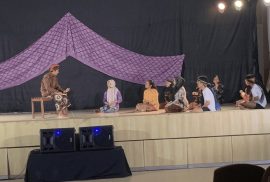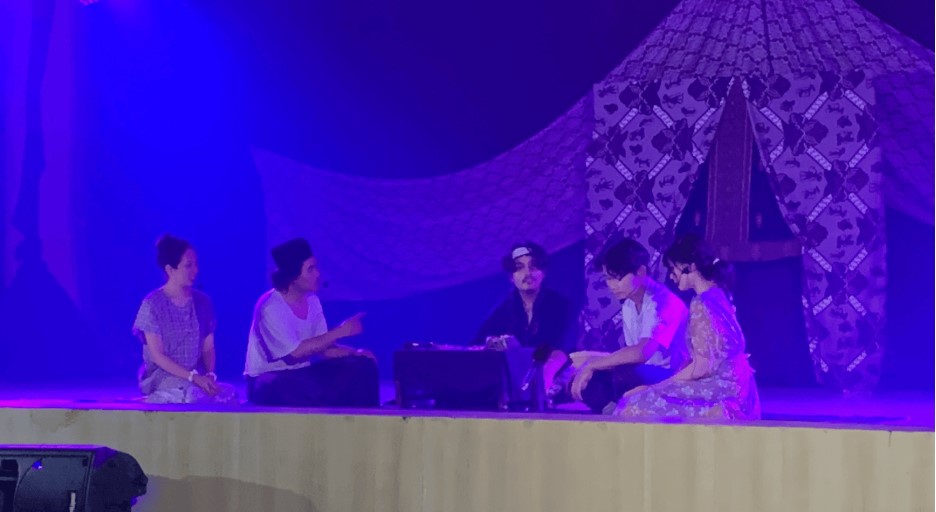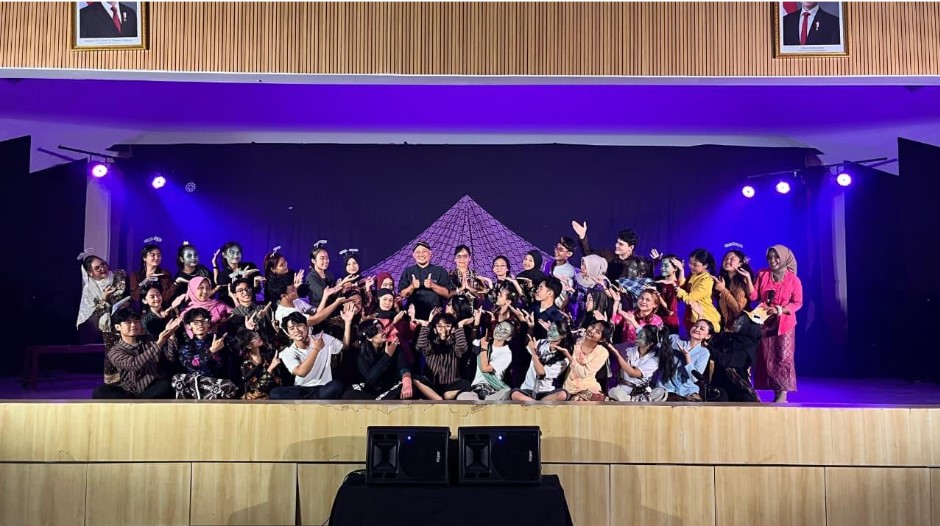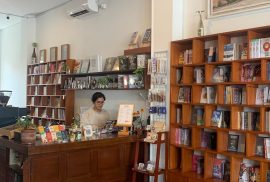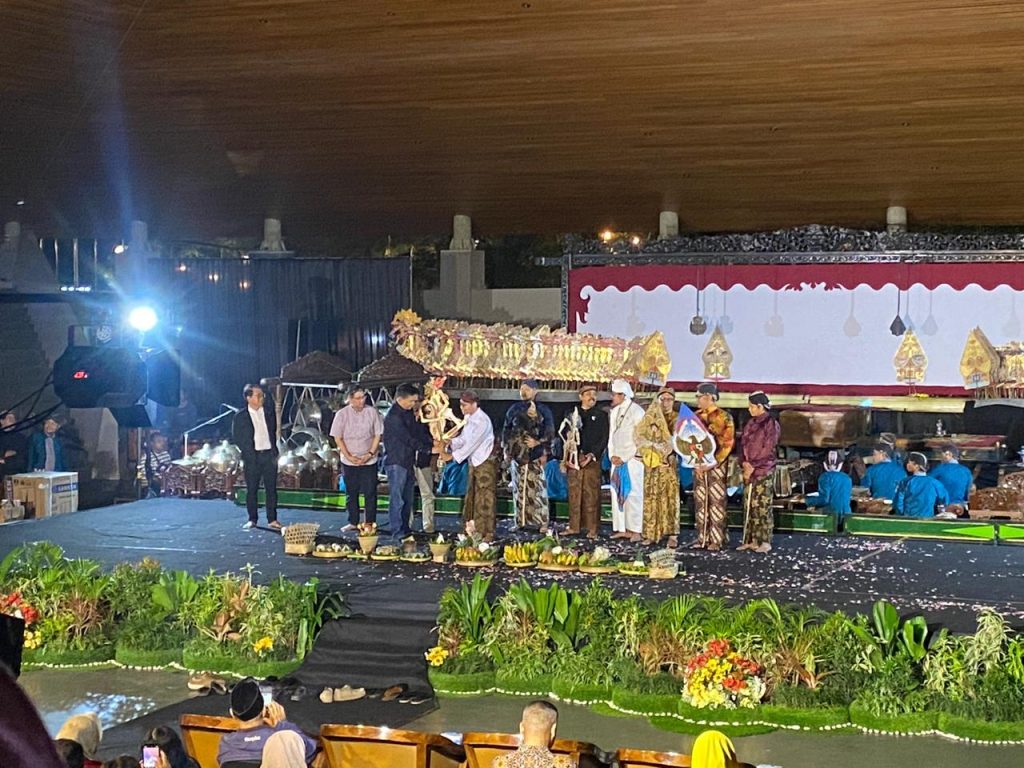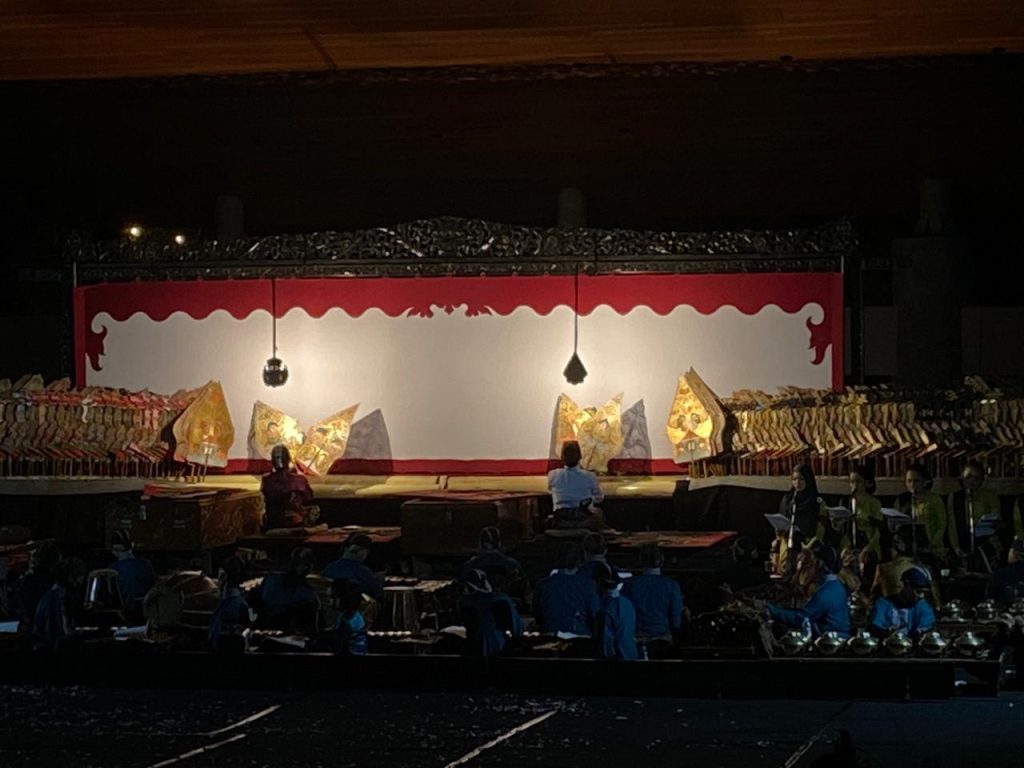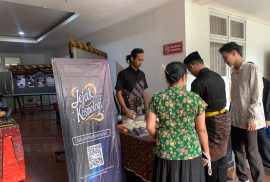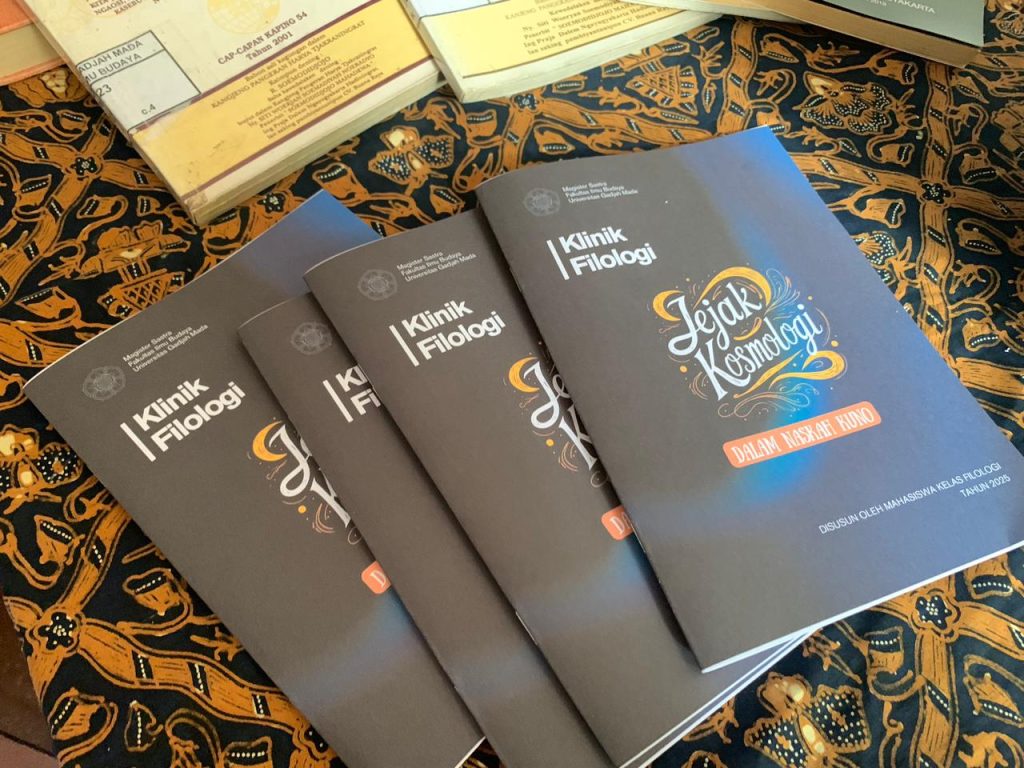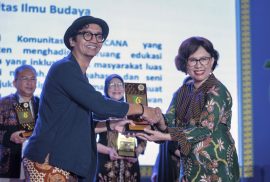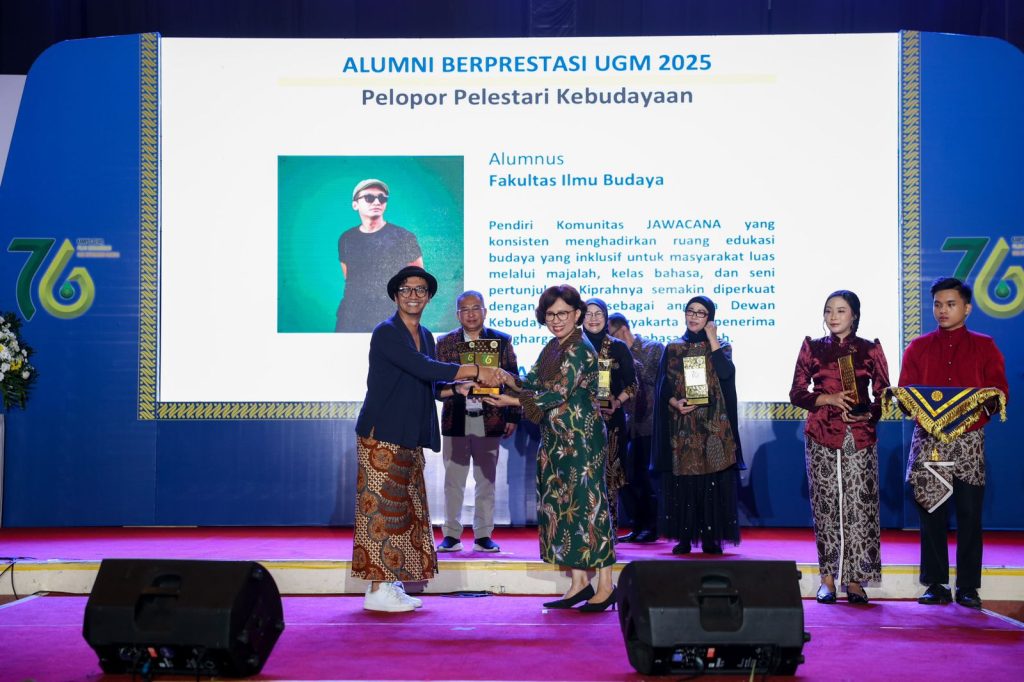Yogyakarta, 16 December 2025 – Students of the Javanese Language, Literature, and Culture Study Program, Class of 2025, Faculty of Cultural Sciences, Gadjah Mada University, staged a drama titled Weton Waton. The performance took place at the Poerbatjaraka Auditorium, FIB UGM, at 6:00 p.m.
This activity was organized as part of the final exam assignment for the Communicative Spoken Javanese Language course taught by Dr. R. Bima Slamet Raharja, S.S., M.A. The performance of Weton Waton was directed by Safa Rahmatul H. as the production manager.
The drama Weton Waton tells the story of a domestic conflict between a husband and wife triggered by financial problems. The root of the problem lies in the husband’s decision to quit his job and get involved in cockfighting gambling. The ongoing conflict then prompts the wife’s parents to take the matter to a shaman. In the story, the shaman says that the couple’s domestic quarrels are caused by an incompatibility in their weton, which is called tiba pegat.
Through this performance, students sought to convey the message that problems should not be automatically attributed to a person’s character or nature based on their weton. In addition, this performance also presented knowledge about the concepts of dina, pasaran, and wuku, which are still believed by some Javanese people to be part of their tradition.
Based on an online interview with Yogi Setiyawan on December 28, 2025, the Weton Waton performance was a final exam assignment that required all students enrolled in the course to be directly involved in the performance. The theme of weton was chosen as an effort to highlight the tradition of calculating weton, dina, pasaran, and wuku that has developed in Javanese society.
“In preparing for the Weton Waton performance, our preparations can be said to still have a number of limitations. The challenges faced include script writing, group division, and funding constraints. From this process, we learned that good and open communication between members is very important in a performance,” said Yogi.
Yogi also expressed his pride in being involved in the premiere performance of the 2025 batch of students from the Javanese Language, Literature, and Culture Study Program. He hopes that this activity can be a first step towards producing better works in the future.
The performance of the Weton Waton drama was not only a means of practicing Javanese language skills orally, but also a platform for students to create and apply their language skills in the form of a performance. In line with the teachings of KGPAA Mangkunegara IV in Serat Wedhatama, which states that ngelmu iku kalakone kanthi laku or knowledge must be implemented through practice, this performance is a tangible manifestation of reviving enthusiasm for the Javanese language while honing students’ creativity. Through activities such as this, students are expected to continue to preserve and revive Javanese culture through concrete efforts that benefit the community.
Author : Haryo Untoro
Editor : Haryo Untoro

